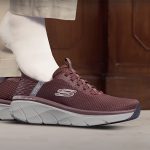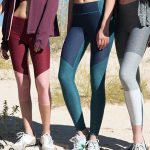The United States District Court for the District of Minnesota recently ruled in favor of Octane Fitness, LLC, on its Renewed Motion to Collect Attorneys' Fees and Costs in a patent infringement case brought by Icon Health & Fitness, Inc.
According to a statement from Octane Fitness, the Court found this case to be exceptional under 35 USC 285, using the new standard set by the U.S. Supreme Court last year that reduces the standard of proof for legal fee reimbursement, which has broad implications for all future patent litigation across all industries.
Octane Fitness now must file documentation of attorneys’ fees and costs in litigating this case and the Court will determine the amount of the award.
“After seven years of dedicating resources to what was shown to be a baseless lawsuit, we feel vindicated that the Court has awarded attorneys’ fees and costs,” said Dennis Lee, president and CEO of Octane Fitness. ”Furthermore, we hope that the Court’s decision in this case will help limit the burden of meritless litigation against businesses in the U.S.”
Icon Health & Fitness, Inc. had sued Octane for infringing on two of its patents on its elliptical machines one on electronic heart rate monitoring and one on linkage of the moving pedals. The heart rate claim was so unreasonable that Icon was forced to drop it, and Octane won on the linkage issue and requested reimbursement for attorneys' fees.
While the U.S. District Court for the District of Minnesota and the U.S. Court of Appeals for the Federal Circuit issued a summary judgment in Octane’s favor in October 2012, both found the case was not “exceptional” enough to warrant imposition of fees.
In response, Octane filed a petition for certiorari with the U.S. Supreme Court, arguing that this statutory interpretation was a “rigid and virtually insurmountable test” and that trial judges should be able to award fees when a patent holder “unreasonably pursues a case having an objectively low likelihood of success” to serve as a deterrent to litigation abuse.
In April 2014, the U.S. Supreme Court overturned the appeals court and reduced the standard of proof for legal fee reimbursement from “clear and convincing evidence” to a “preponderance of the evidence,” thereby providing district court judges greater latitude in awarding fees on lawsuits that they think should not have been brought.
The U.S. Supreme Court remanded the case to the Federal Circuit for reconsideration, which then sent it to the District Court.
In its decision, the Court indicated that Octane Fitness showed by “a preponderance of the evidence that Icon’s litigation position was exceptionally weak” and “the imposition of fees is appropriate.”
The case is Octane Fitness v. Icon Health & Fitness, Civil. No. 09-319.















